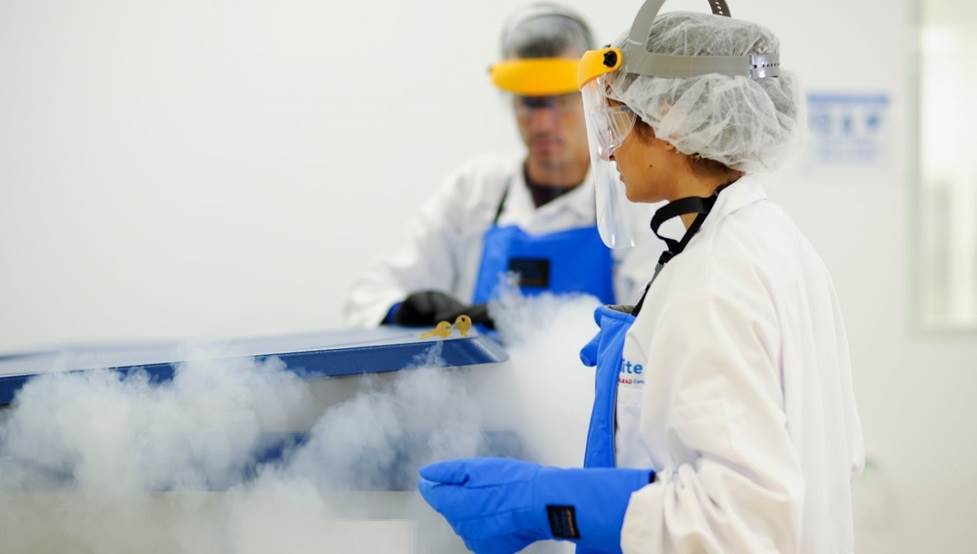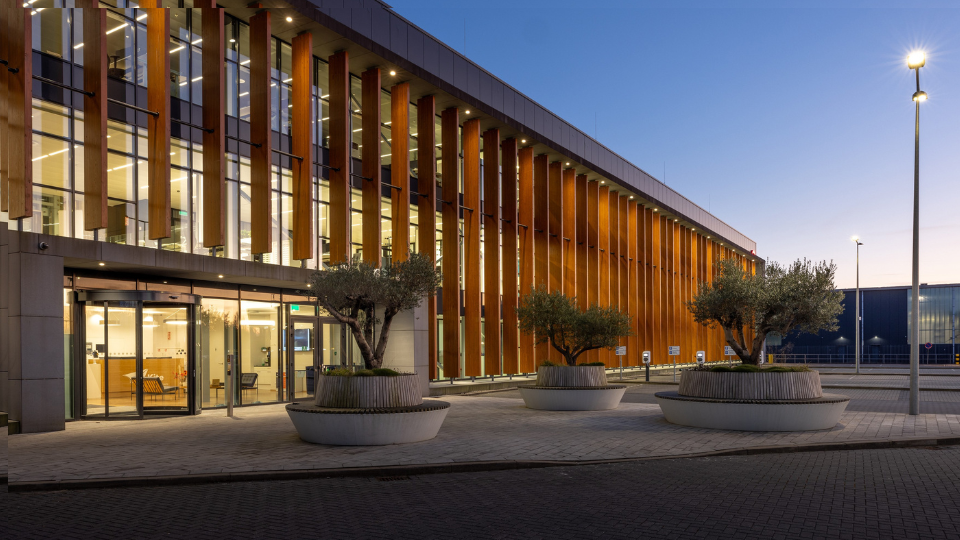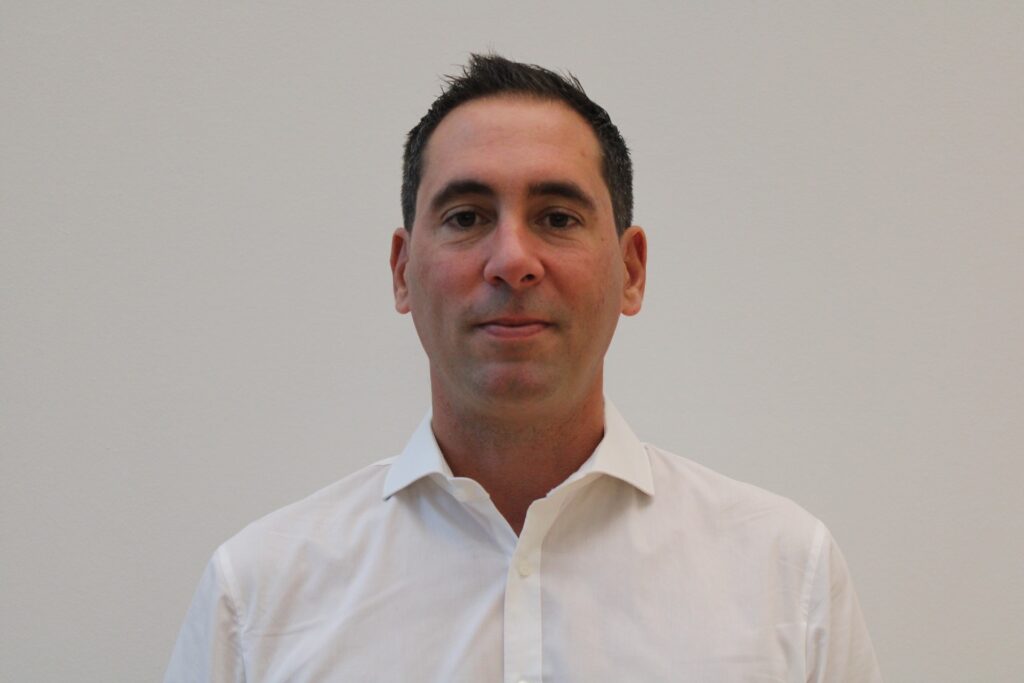Kite’s cell therapy gives the immune system extra ammunition to fight cancer. Since their establishment in the Netherlands 10 years ago, Kite has grown into one of the largest cell therapy manufacturers in Europe. The “Invest in Holland network” spoke to Antoine Maupu, Vice President & Site Head at Kite Pharma EU B.V., about their growth and the thriving life sciences industry in the Netherlands.
Individualised patient therapy
Cell therapy is an individualised treatment that harnesses a patient’s own immune cells to specifically target and attack cancer cells. It is used for the treatment of certain types of blood cancers. Approved by the European Medicines Agency (EMA) in 2018, Kite’s cell therapy is manufactured with a type of white blood cells (T-cells) from a specific patient as starting material.
As Muapu explains, “T-cells are taken from the patient’s blood and modified to recognise and attack the cancer cells. These modified T-cells are given back to the patient via a one-time, single infusion. Taken from patients in over 300 qualified hospitals across 3 continents, these cells are transported to the Kite facility near Amsterdam. Once they arrive, the cells are engineered and expanded in approximately 17 days, before being sent back to the treatment centre and administered to the same patient.
Kite’s growth in the Netherlands enables it to serve patients in Europe and beyond
Kite was established as a company in Santa Monica in 2009. In 2015, Kite bought T-Cell Factory in Amsterdam, a spin-off from the Netherlands Cancer Institute (NKI), to further contribute to cell therapy development. At that time, the Dutch team had only 3 employees. Kite was later purchased by the US-owned biopharmaceutical company Gilead Sciences, in 2017, which helped them to grow further.
Having moved to a 19,000m2 facility in Hoofddorp in March 2020, Kite has grown to currently over 900 highly skilled employees, with the capacity to supply up to 4000 cell therapy treatments a year. From its only production facility in Europe, Kite collaborates closely with over 300 qualified hospitals in Europe and beyond to supply cell therapy to patients in 24 countries.
Looking at the future, there’s no sign of things slowing down. “We’ve been in the Netherlands for 10 years now and in our facilities in Hoofddorp for 5 years this summer. Over the past year, we expect to not only expanded our organisation in terms of the number of countries we supply, but also in the types of cell therapies we manufacture. Now, we produce two types for five blood cancer indications.” says Maupu.
Supply chain solutions are crucial for Kite’s operations
As this is an individualised treatment – with cells needing to be taken from a patient and infused back into the same individual, there’s no doubt that cell therapy comes with some unique logistical requirements. Maupu explains: “Once the cells have been taken, the clock ticks, and there are around 70 hours maximum to transport them to our manufacturing facility. During their journey, they have to be kept within a constant 4°C-8°C range. After engineering, on their way back to the hospital, it’s even -150°C. With Amsterdam Schiphol Airport being a major European transport hub, our location next to it provides us with quick and convenient access to Europe and beyond, which is crucial to our operation. It just makes sense for us to be situated here, in this area.”
Maupu makes special mention of the European Medicines Agency, located in the Netherlands, the agency in charge of evaluating and supervising pharmaceutical products, and the role it has played for the industry.
“Since the EMA arrived in 2018, the Netherlands is increasingly becoming a European hub in biotech and pharmaceuticals. This has given new energy to the exchange of knowledge, which is one of the catalysts for the investment climate here. We’ve witnessed strong growth, particularly in the category Advanced Therapeutical Medicines Products (ATMP), over the past years.”
Europe’s connected Life Sciences & Health metropolis
Amsterdam has four hospitals located close to each other, and within a 50 km radius – including Utrecht and Leiden – you’ll find several world-class academic institutes. Together, they contribute to a highly educated, internationally diverse medical talent pool.
The team in Hoofddorp currently consists of over 50 nationalities. Maupu notes: “The diversity that this brings is extremely important. Different approaches to creative and analytical thinking all contribute to creating an innovative and dynamic process, which is crucial since cell therapy is truly a team sport. Diversity results in the best solutions.”
Looking towards the future, Maupu is optimistic. “I firmly believe we are in the position to really make a difference for patients and their families, and we’re proud to see this attracts highly motivated people who want to be part of this amazing journey. We are and will be focused on the ambition to achieving cures with cell therapy.”
For this ambition, the Dutch Life Sciences & Health ecosystem, offers a strong foundation. A key player in Europe’s life sciences & health industry, the Netherlands is focused on collaboration between research institutions, medical centres, companies and startups all working to advance medical innovation.
Source: Amsterdam inBusiness



